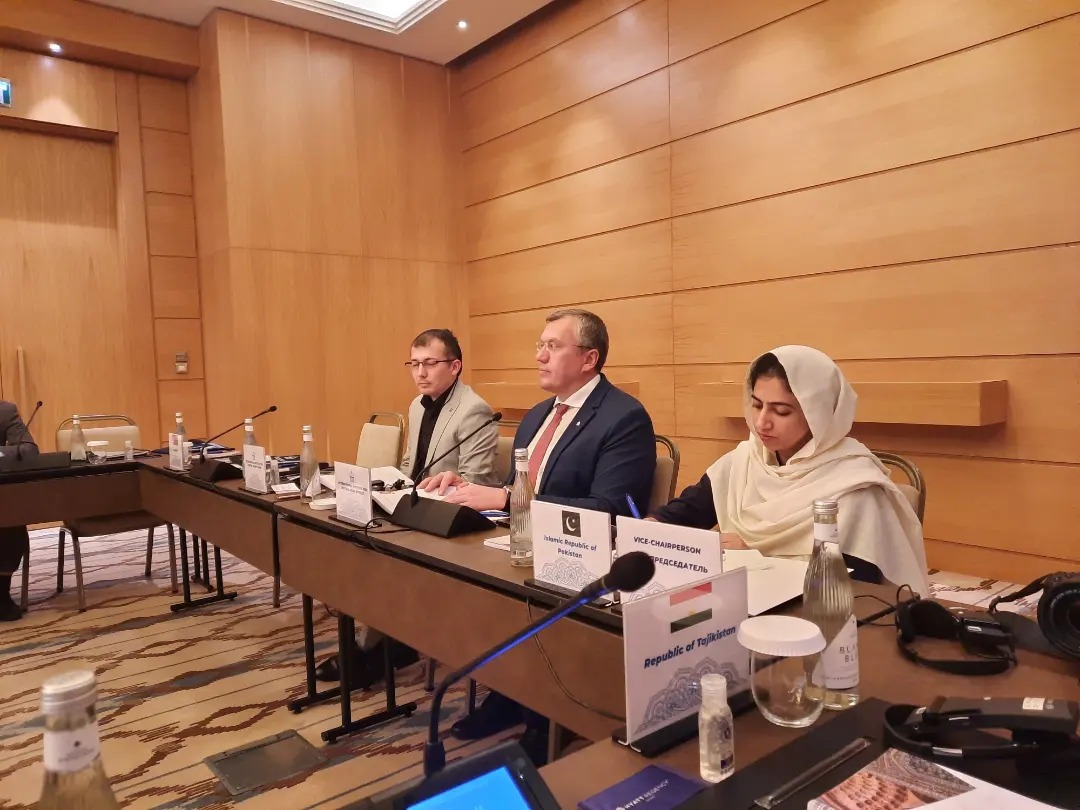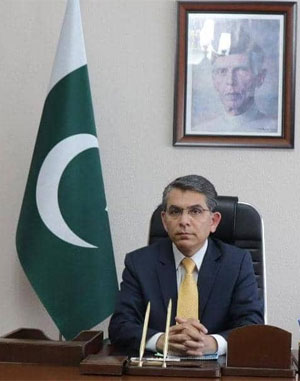Important Links in Pakistan
Important Links in Uzbekistan
Un Experts On Jammu & Kashmir
The UN independent human rights experts, also known as Special Procedures or mandate-holders, constitute an important pillar of the UN Human Rights system. Within their respective work areas, they have been mandated to act on reported incidents as well as patterns of human rights violations in a specific country or territory by sending communications/letters to the concerned country. They also engage in advocacy and awareness-raising about these violations through issuing public reaction/press releases and highlighting them in their annual reports to the UN Human Rights Council as well as the UN General Assembly, where applicable.
The UN experts have been documenting, remotely monitoring and publicly expressing their grave concerns over systematic and widespread abuses of Kashmiri people’s fundamental rights and freedoms at hands of Indian occupation forces.
Joint Communications/Letters
The UN mandate-holders have dispatched numerous joint letters to India, voicing their deep concerns over the flagrant and multi-dimensional human rights violations, being perpetrated by Indian forces against Kashmiri people with complete impunity, under cover of enabling draconian laws. In these letters, India has been asked to explain and justify legal grounds for these multiple and serious human rights transgressions in light of its international human rights obligations and commitments. India has only responded to one of the five letters.
A brief description of five of these communications, sent by mandate-holders in wake of India’s illegal actions of 05 August 2019 and made public by the UN, is given below:
In their Joint Letter Dated 16 August 2019, six prominent UN mandate-holders expressed their deep concerns over the severe restrictions on the freedoms of expression and peaceful assembly; enforced disappearances; and widespread arbitrary arrests and detention of political figures, journalists, human rights defenders and boys/teenagers during night raids since India’s illegal and unilateral actions of 05th August. They also voiced their strong concerns over reported violations of Kashmiri people’s fundament right to life due to use of force, including live ammunition, by Indian forces as well as the adverse human rights effects of the complete internet and communication shutdown.
In a second Joint Letter Dated 27 February 2020, five UN Special Procedures conveyed their grave concerns to India over arbitrary detention, as well as the deteriorating health condition while in detention of Mr. Miyan Abdul Qayoom, a human rights lawyer and President of Jammu& Kashmir High Court Bar Association. They indicated that Mr. Qayoom’s detention was an act of reprisal by India for his opinions and human rights work and advocacy in IIOJ&K.
In the third Joint Letter Dated 04 May 2020, four UN experts relayed their deep concerns to India over the continued deterioration of human rights conditions in IIOJ&K since 05 August 2019, in particular citing specific cases of continued arbitrary detentions, excessive use of force, custodial torture and ill-treatment, and death in custody, especially targeting Kashmiri Muslims.
In the fourth Joint Letter Dated 12 May 2020, three UN mandate-holders expressed their deep disappointment over criminal proceedings and investigations initiated by Indian authorities under Unlawful Activities Prevention Act against four renowned Kashmiri journalists, Mr. Gowher Geelani; Ms. Masrat Zahra; Mr. Naseer Ganai; and Mr. Peerzada Ashiq, due to their coverage of the post-05 August situation in IIOJ&K. They warned that these cases suggest a pattern of silencing independent reporting of the situation in IIOJ&K through criminal sanction.
In the fifth Joint Letter Dated 01 July 2020, nine UN mandate-holders expressed deep concerns over the ‘deliberate, undue and unreasonable delay’ on the part of Indian authorities to conduct prompt, effective, and thorough investigations into hundreds of cases of enforced disappearances and extrajudicial killings, affecting mainly Kashmiri Muslims. In this connection, they expressed particular alarm over the scale and geographic spread of the unmarked and mass graves in north Kashmir. The UN experts further voiced serious concerns over the sudden and unexplained closure of Jammu & Kashmir State Human Rights Commission (SHRC) as a deeply negative development, leaving Kashmiri people with limited legal recourse to seek justice for human rights violations committed by Indian forces against them. They warned that with the dissolution of SHRC, as well as the continued internet restrictions, the already problematic human rights situation in IIOJ&K will continue to deteriorate further.
Press Releases
In addition to joint letters, UN mandate-holders have also publicly voiced their strong concerns over the rapidly deteriorating human rights situation in IIOJ&K, as result of India’s illegal and unilateral actions of 05th August 2019.
On 22 August 2019, Un Rights Experts Urged India to end Communications Shutdown as Well as the Crackdown on Freedom of Expression, Access To Information & Peaceful Protests Imposed in Kashmir.
“The shutdown of the internet and telecommunication networks, without justification from the Government, are inconsistent with the fundamental norms of necessity and proportionality,” said the experts. “The blackout is a form of collective punishment of the people of Jammu and Kashmir, without even a pretext of a precipitating offence.” The experts expressed deep concerns over reported increase in the arrest of political figures, journalists, human rights defenders, protesters and others as well as use of excessive force against protesters, including the use of live ammunition.
On 04 August 2020, on completion of one year of India’s illegal and unilateral actions, Un Experts Called on India & the International Community to Take Urgent Action to Address The Alarming Human Rights Situation in The Territory. The experts said that since 5 August 2019, “the human rights situation in Jammu and Kashmir has been in free fall. If India will not take any genuine and immediate steps to resolve the situation, meet their obligations to investigate historic and recent cases of human rights violations and prevent future violations, then the international community should step up.” “There is a stream of new alleged rights violations. With no State Human Rights Commission and internet restrictions, the avenues for reporting are further reduced. We call on India to schedule pending visits as a matter of urgency, particularly of the experts dealing with torture and disappearances,” the experts added.
- Embassy Team
Ambassador
H.E. Mr. Ahmed Farooq
(+998-71) 2309863
Political Wing
Ms. Tuba Asif
Deputy Head of Mission/ Head of Chancery
(+998-71) 2309866
Office of the Permanent Representative to RATS SCO
Mr. Faheem-ud-Din Qazi
Permanent Representative to RATS SCO
(+998-71) 2309860
Consular Wing
Mr. Saqib Ali
Counsellor
(+998-71) 2309865
(+998-93) 0579150
Commercial Wing
Mr. Ataullah
Trade and Investment Counsellor
(+998-94) 8045190
Defence Wing
Col. Naveed Ahmad Khan
(+998-71) 2309864
Photo & Video Gallery

Contact Information
Building No. 80-82, Abdulla Avloniy Street, Yakkasaroy Tumani, Tashkent, Uzbekistan


